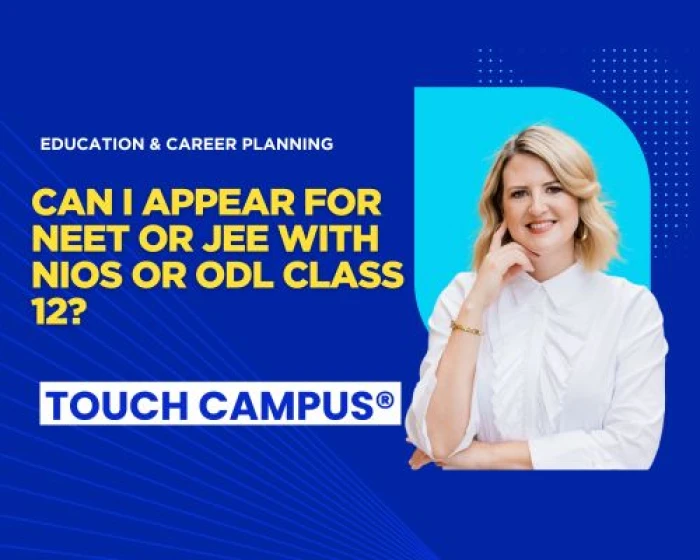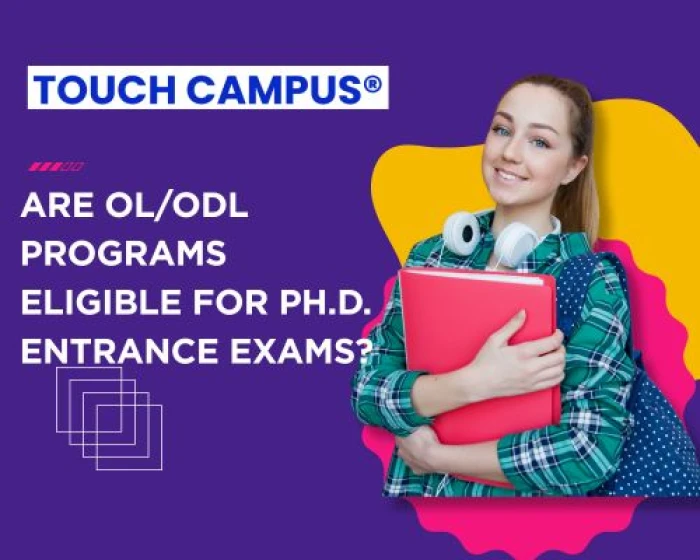Blog Body:
When thinking about pursuing a degree through Online Learning (OL) or Open and Distance Learning (ODL), many students wonder if such programs are a good fit for technical or professional degrees like B.Tech (Bachelor of Technology) or MBBS (Bachelor of Medicine, Bachelor of Surgery).
Let’s dive into whether OL/ODL programs are suitable for these specialized fields and what factors you should consider.
Technical Degrees (e.g., B.Tech)
Hands-on Learning is Crucial: Engineering and technology courses require extensive practical sessions, lab work, and hands-on experience.
OL/ODL Challenges: While theoretical subjects can be taught online, practical labs and workshops are harder to replicate remotely.
Hybrid Models: Some institutes offer blended programs where theory is online but labs and projects happen on-campus or at partner centers.
Accreditation and Recognition: Not all engineering OL/ODL programs are recognized by statutory bodies like AICTE (All India Council for Technical Education). Ensure the program has proper approvals.
Bottom line: OL/ODL for B.Tech is still developing, and if practical exposure and campus experience are important to you, purely online degrees might not be ideal. Look for hybrid programs with practical components.
Professional Degrees (e.g., MBBS)
Clinical Training is Mandatory: Medical education is highly practical, requiring in-person clinical rounds, hospital internships, and hands-on patient care.
OL/ODL Limitations: Due to the nature of medical training, full MBBS degrees are typically not offered through OL or ODL modes.
Supplementary Online Courses: You can find online diplomas, certifications, or theory-based courses related to healthcare, but the core MBBS degree requires regular attendance.
Regulatory Bodies: Medical Council of India (MCI) and other authorities strictly regulate medical education. Distance learning MBBS programs are generally not recognized.
Bottom line: MBBS or similar medical degrees cannot be pursued fully online or via distance learning due to mandatory practical training and regulatory rules.
Who Can Benefit from OL/ODL in These Fields?
Theory-Focused Subjects: Students interested in non-practical or management aspects of technology, like software engineering or IT management, may find OL/ODL options useful.
Continuing Education: Working professionals can upgrade skills via online certifications or postgraduate diplomas in related areas.
Supplementary Learning: Students can complement regular degrees with online courses for extra knowledge or specialization.
Key Points to Consider Before Enrolling:
Check Accreditation: Verify if the program is approved by relevant bodies like AICTE, UGC, or MCI.
Evaluate Practical Requirements: Understand how practical sessions are conducted and if you can attend physical labs or internships.
Career Goals: If you want hands-on roles in engineering or medicine, practical exposure is essential.
Flexibility vs. Quality: Online learning offers flexibility but may lack direct mentoring and peer interaction.
Final Thoughts
While OL/ODL programs are transforming education and offering great flexibility, technical and professional degrees like B.Tech and MBBS have unique requirements that pure online or distance formats cannot fully meet yet.
If you’re aiming for a career in engineering or medicine, prioritize programs that provide adequate practical exposure and have the right approvals. However, OL/ODL can be a great way to enhance skills, pursue certifications, or study theory-based courses alongside your regular studies or job.
Choosing the right mode of study depends on your goals, learning style, and course requirements. Always research thoroughly and consult academic advisors before making a decision







